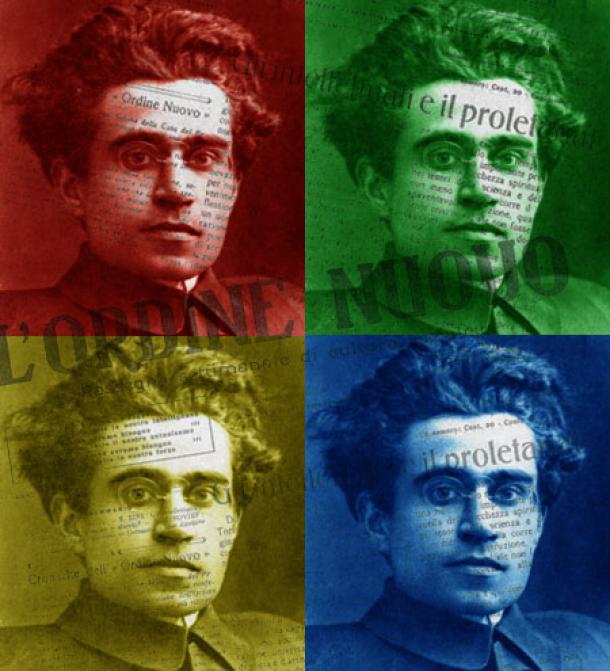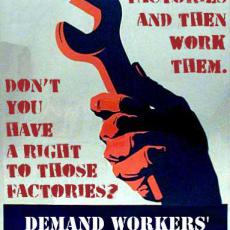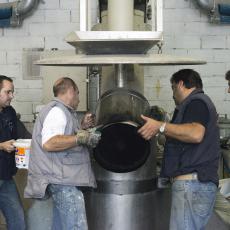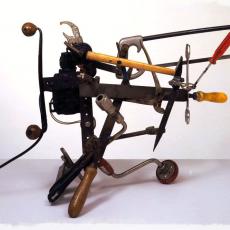Unions and councils
The proletarian organization which assembles, as the total expression of the worker and peasant mass, in the central offices of the Confederazione del Lavoro, is passing through a constitutional crisis similar in nature to the crisis in which the democratic parliamentary state vainly debates. The solution of one will be the solution of the other, since, resolving the problem of the will of power in the case of their class organization, the workers will arrive at the creation of the organic scaffolding of their state and they will counterpose it victoriously to the parliamentary state.
The workers feel that the complex of “their” organization has become such an enormous apparatus, which has ended in obeying its own laws, intimate to its structure and to its complicated functioning, but extraneous to the mass which has acquired a consciousness of its historical mission as a revolutionary class. They feel that their will for power is not expressed, in a clear and precise sense, through the current institutional hierarchies. They feel that even at home, in the home they have tenaciously constructed, with patient efforts cementing it with blood and tears, the machine crushes the man, bureaucracy sterilizes the creator spirit and banal and verbalistic dilettantism attempt in vain to hide the absence of precise concepts on the necessities of industrial production and the lack of understanding of the psychology of the proletarian masses. The workers are irritated by these real conditions, but they are individually powerless to change them; the words and wills of individual men are too small a thing compared to the iron laws inherent in the structure of the union apparatus.
The leaders of the organization do not notice this deep and widespread crisis. The more it clearly appears that the working class is not organized in forms corresponding to its real historical structure, the more it happens that the working class is not lined up in a configuration which incessantly adapts itself to laws which govern the intimate process of real historical development of the class itself; the more these leaders persist in their blindness and force themselves to “juridically” settle dissent and conflicts. Eminently bureaucratic spirits, they believe that an objective condition, rooted in the psychology which is developed in the living experiences of the factory, can be overcome with a discourse which moves feelings, and with an order of the day unanimously voted in an assembly made ugly by hubbub and oratorical meanderings. Today they force themselves to “rise to the height of the times” and, as if to demonstrate that they are also capable of “hard thinking,” refashion the old and worn-out union ideologies, tediously insisting on relations of identity between the soviet and the union, tediously insisting on affirming that the present system of union organization constitutes the system of forces in which the dictatorship of the proletariat must be made flesh.
The union, in the form in which it presently exists in the countries of Western Europe, is a type of organization not only essentially different from the soviet, but different also, and in a notable way, from the union which is developing ever more in the red communist republic.
The trade unions, the Camere del Lavoro, the industrial federations, the Confederazione Generale del Lavoro, are the type of proletarian organization specific to the period of history dominated by capital. In a certain sense it can be maintained that it is an integral part of capitalist society, and it has a function which is inherent to the regime of private property. In this period, in which individuals have value in so far as they are owners of goods and trade in their property, workers have also had to obey the iron law of general necessity and have become merchants of their only property, labour power and professional intelligence. More exposed to the risks of competition, workers have accumulated their property in ever more vast and comprehensive “firms,” they have created this enormous apparatus of concentration of flesh and graft, they have imposed prices and hours and they have disciplined the market. They have assumed from outside or they have generated from within a trusted administrative personnel, expert in this kind of speculation, up to the job of dominating the conditions of the market, capable of stipulating contracts, of assessing commercial vagaries, of initiating economically useful operations. The essential nature of the union is competitive, it is not communist. The union cannot be an instrument of radical renewal of society: it can offer the proletariat knowledgeable bureaucrats, technical experts in industrial questions of general character, it cannot be the base of proletarian power. It offers no possibility of choosing individual proletarians capable and worthy of leading society, it cannot generate hierarchies which embody the vital thrust, the rhythm of progress of communist society.
The proletarian dictatorship can be made flesh in a type of organization which is specific to the particular activity of producers and not of wage-earners, slaves of capital. The factory council is the first cell of this organization. Since in the council all the branches of labour are represented, proportionally to the contribution each trade and each branch of labour makes to the development of the object which the factory produces for the collective, the institution is of a class, it is social. Its reason for being is in labour, is in industrial production, in a thus permanent state and not only in a salary, in the division of classes, in a thus transitory state and which is precisely to be overcome.
Thus the council realizes the unity of the labouring class, gives the masses a cohesion and a form which are of the same nature as the cohesion and form as the mass assumes in the general organization of society.
The factory council is the model of the proletarian state. All the problems which are inherent in the organization of the proletarian state are inherent in the organization of the council. In one and the other the concept of citizen decays, and the concept of comrade grows: collaboration to produce well and usefully develops solidarity, multiplies the links of affection and fraternity. Everyone is indispensable, everyone is at their post, and everyone has a function and a post. Even the most ignorant and backward of workers, even the most vain and “cultured” of engineers end convincing themselves of this truth in the organization of the factory: all finish by acquiring a communist consciousness to understand the great step forward which the communist economy represents over the capitalist economy. The council is the most suited organ of reciprocal education and of development of the new social spirit which the proletariat has managed to develop from the living and fertile experience of the community of labour. Worker solidarity which in the union developed in the struggle against capitalism, in suffering and sacrifice, in the council is positive, is permanent, is made flesh even in the most negligible of moments of industrial production, is contained in the glorious consciousness of being an organic whole, a homogeneous and compact system which working usefully, which disinterestedly producing social wealth, affirms its sovereignty, actuates its power and freedom to create history.
The existence of an organization, in which the labouring class is lined up in its homogeneity of a producing class, and which makes possible a spontaneous and free flowering of fitting and capable hierarchies and individuals, will have important and fundamental effects on the constitution and spirit which enliven activity of unions.
The factory council is also founded on trades. In each section the workers are separated by team and each team is a unit of labour (trade): the council is constituted precisely of commissars which the workers elect by section trade (team). But the union is based on the individual, the council is based on the organic and concrete unity of the trades which is developed in the discipline of the industrial process. The team (trade) feels distinct in the homogeneous body of the class, but in the same moment it feels engaged in the system of discipline and order which makes possible, with its exact and precise functioning, the development of production. As an economic and political interest the trade is united in solidarity with the body of the class; it is differentiated from it as a technical interest and as the development of the particular instrument which it adopts for labour. In the same way, all industries are homogeneous and solidaristic in the aim of realizing perfect production, distribution and social accumulation of wealth; but each industry has distinct interests regarding the technical organization of its specific activity.
The existence of the council gives workers the direct responsibility of production, it draws them to improving the work, instils a conscious and voluntary discipline, creates the psychology of the producer, of the creator of history. The workers bring into the union this new consciousness and from the simple activity of class struggle, the union dedicates itself to the fundamental work of impressing a new configuration upon economic life and the technique of labour, it dedicates itself to elaborating the form of economic life and professional technique which is proper to communist culture. In this sense the unions, which are constituted of the best and most conscious workers, actuate the supreme moment of the class struggle and of the dictatorship of the proletariat: they create the objective conditions in which classes can no longer exist nor be reborn.
In Russia, this is what the industrial unions do. They have become the organisms in which all the individual enterprises of a certain industry amalgamate, connect, act, forming a great industrial unity. Wasteful competition is eliminated, the great services of administration, of resupply, of distribution and of accumulation, are unified in large centres. The systems of work, the secrets of fabrication, the new applications immediately become common to the whole industry. The multiplicity of bureaucratic and disciplinary functions inherent to relations of private property and individual enterprise, is reduced to pure industrial necessities. The application of union principles to the textile industry has allowed in Russia a reduction of the bureaucracy from 100,000 employees to 3,500.
The organization by factory makes up the class (the whole class) in a homogeneous unit and which adheres plastically to the industrial process of production and dominates it to take ownership definitively. In the organization by factory is thus made flesh the proletarian dictatorship, the communist state which destroys the dominion of class in the political superstructures and in its general mechanisms.
The trade and industry unions are the solid vertebrae of the great proletarian body. They elaborate individual and local experiences, and they gather them, actuating that national equalizing of conditions of labour and of production on which is concretely based communist equality.
But because it is impossible to impress on the unions this positively class and communist direction it is necessary that the workers turn all their will and their faith to the consolidation and the diffusion of the councils, to the organic unification of the labouring class. On this homogeneous and solid foundation will flower and develop all the superior structures of the communist dictatorship and economy.






Comments
Post new comment